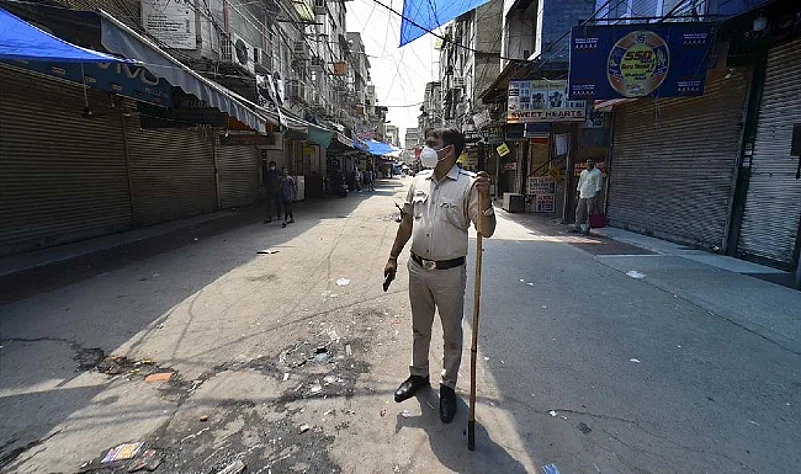Retailers Association of India (RAI) on Wednesday dubbed as 'a partial lockdown' the Delhi government's restrictions on shops, restaurants and malls amid the spread of the Omicron variant and rising COVID-19 cases.
The Delhi government on Tuesday had announced a 'yellow alert' under which schools, colleges, cinemas and gyms will remain closed, shops dealing in non-essential items will open on odd-even basis, and metro trains and buses will run with 50 per cent of seating capacity in the city.
Under the order, shops of non-essential goods and services in markets and malls can open based on odd-even formula from 10 AM to 8 PM. Restaurants will be permitted with 50 per cent of capacity from 8 am to 10 pm while bars can also operate with the same capacity, but from 12 noon to 10 pm.
"The recent Order of Alert issued by the Government of NCT of Delhi, is a nightmare for retail businesses like shops, restaurants and malls as it has a load of restrictions akin to a partial lockdown," RAI CEO Kumar Rajagopalan said in a statement.
He further said, "Sudden overnight restrictions such as these create uncertainty for businesses and confusion in the minds of consumers with regards to odd and even and leads to crowding, beating the purpose of such measures."
A more suitable step would have been a better reinforcement of COVID-appropriate behavior in public places like wearing masks, proper sanitisation and social distancing, Rajagopalan said.
Stating that while RAI understands that the COVID-19 cases are on the rise and the government has to take measures to control the spread to save lives, he added, "However, the government's criterion for determining levels should have been different because a lot has changed since the levels were determined in August 2021."
Arguing that the COVID-19 strain has changed and the number of people vaccinated has dramatically increased, Rajagopalan said, "Considering that the need for hospitalisation is significantly lower in the case of Omicron infection as compared to earlier variants, the number of hospitalisations should have been the criterion to consider because of the pressure it puts on the healthcare system."
India has recorded 781 cases of the Omicron variant of coronavirus across 21 states and UTs so far and Delhi recorded the maximum number of 238 cases followed by Maharashtra at 167, Gujarat 73, Kerala 65 and Telangana 62, according to the Union Health Ministry data updated on Wednesday.
With inputs from PTI.
























